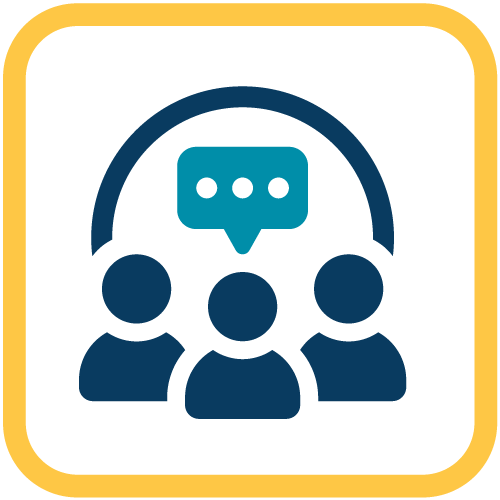Communicate with Others
Communicate with family members, neighbors, and direct support professionals. Develop a network of individuals that you can rely on for assistance. Meet with these individuals and create a preparedness plan, discuss what would happen in different types of emergencies: Fire, tornado, flood, etc.
When creating an emergency preparedness plan, proximity is important, so rely most on those closest to you. This plan goes beyond home: It applies to locations where you spend significant time, such as schools, clubs, community centers, work, and volunteer settings.
Developing a network is a two-way street. As you identify what others can do for you, be sure to identify what you can do for others. Many individuals with disabilities have organizational and communication skills or other skills and abilities that can be utilized in a plan.
Identify Your Needs
Communicate with the people in your support network on how to best assist you in an emergency.
Tell them:
- How to notify you of an emergency if you are deaf or hard of hearing.
- How to communicate with you if a sign language interpreter is not available, such as written notes or text.
- How to use your evacuation equipment if you have a mobility disability.
- About the services provided by your service animal if you have one.
- How to guide you if you are blind or low vision.
- How to identify your support needs and provide assistance if you have an intellectual, cognitive, or developmental disability, or to accommodate your neurodiversity.
- How to do a blood pressure check, assist with an injection, or assist with a transfer, etc.
If You Live with a Mental Illness
Being prepared if you or someone you know has a mental illness ensures your safety and the safety of first responders.
- Tell people in your support network how to secure the documents and assistance you might need in an emergency. For example, how best to notify you of an emergency; information on your disability, your current medication, name of your therapist, psychiatrist or psychopharmacologist; where you prefer to be taken in a mental health emergency; contact information of a family member or friend who listens to you and can advocate for you in a crisis.
- Bring a week’s worth of medication, and slip-on clothing without strings or ties.
- Tell responders: “Do not escalate the situation. Talk softly, and listen closely to what I am saying. Don’t be judgmental, help me get the proper resources.”
